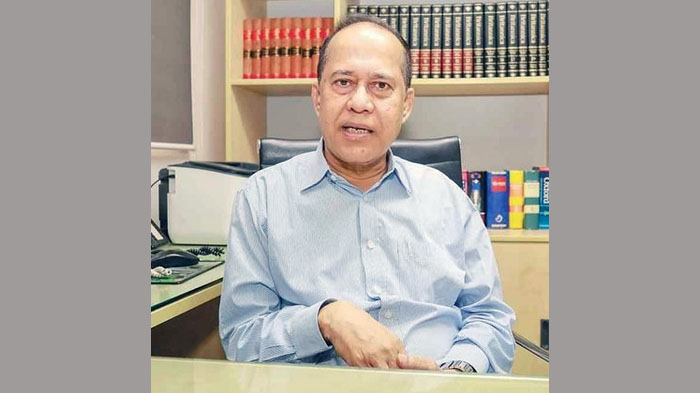Baria Alamuddin
The all-too-brief ceasefire is already a dim and distant memory and the systematic killing of civilians in Gaza has resumed. Hence, this is the moment to question: Where does this all end and what are the long-term implications for Palestinians and Israelis?
Israel has already signaled that the carnage is destined to move south, where it previously dispatched Gaza’s entire population. “If (Palestinian civilians) stay in Khan Younis or Rafah, a similar fate awaits to what happened in Gaza City,” one Israel Defense Forces spokesman gruesomely stated. The baffling checkerboard maps of Gaza’s tiny 363 sq. km territory that Israel has distributed assume that 2 million people will endlessly scamper from one square to another, while warplanes bomb everything around them. QR code warnings would be a terrible idea even if everybody had not long since lost electricity and internet access. About 80 percent of the population has already been displaced, and we are just getting started.
Israeli politicians make no secret of their desire to see Palestinians permanently excluded from Gaza. The stated objective of bottling the entire population in a tiny quartile adjacent to the Egypt border resembles a textbook example of population transfer — for those not killed in the bombing first. If not, why have Israel’s Western allies not extracted public assurances that this is not the case?
US Secretary of State Antony Blinken insincerely urged Israel “to take every possible measure to avoid civilian harm” and, in a stunning rebuke, Defense Secretary Lloyd Austin warned that Israel’s failure to protect civilians would “drive (Palestinians) into the arms of the enemy” and “replace a tactical victory with a strategic defeat.” Yet, despite the war on Gaza rapidly outstripping the number of child fatalities from all other global wars combined, President Joe Biden refuses to exert actual pressure on Israel — even as his support craters among crucial young and multiethnic demographics ahead of next year’s elections.
One of the reasons for Israel’s occasional hesitations is its complete absence of a strategy for the day after the conflict ends. We have seen how such strategic failures played out in Iraq. Indeed, many commentators compare Israel’s acts of vengeance with the irrational manner in which the US lashed out after 9/11.
Israel is gripped by existential fear, in a manner the country has not experienced for decades. It is not just vast regions to the north and south, but Tel Aviv also lies within easy reach of both Hamas and Hezbollah’s rockets. While the Oct. 7 attacks unleashed an overwhelming hunger for vengeance, wiser heads recognize that they must find an amicable modus vivendi with neighbors if Israelis are ever to enjoy safety and peace. The crisis has fueled debates hardly heard in decades, with progressive voices blaming Prime Minister Benjamin Netanyahu and the extreme right for marching Israel into catastrophe; while also floating proposals for how the peace process could be revived from the dead, including mooting the idea of a Canada-style federal system.
More enlightened Israelis are highly disconcerted at how Israel’s global standing has plunged due to the Gaza atrocities. And not just among the world’s Muslim communities — young people throughout the Western world have been particularly galvanized by this human tragedy, along with demographics that normally pay scant attention to foreign affairs. In this transformed political climate, for how much longer can Israel take unqualified Western support for granted?
Since 1948, it has been de facto Israeli policy to render life in Gaza unlivable through all possible means, toward the goal of depopulating the Strip. The complete destruction of more than 60 percent of buildings in northern Gaza so far and the blocking of food and essential supplies into the region serve the same ethnic cleansing agenda. In a belated US recognition of this scenario, Vice President Kamala Harris, after meeting Arab leaders, last week warned that “under no circumstances will the United States permit the forced relocation of Palestinians” or “the redrawing of the borders of Gaza.” We will believe this when we see it.
If Israel were to get away with wholesale population transfer in Gaza, it would confer momentum upon Zionist extremists who for years have been calling for the elimination of the West Bank’s Palestinian population, including Jerusalem. Arab states — including those that made peace with Israel — should explore every means at their disposal to render such moves diplomatically inconceivable.
Many commentators argue that the hatred aroused by the post-Oct. 7 events make a return to negotiations and a two-state solution impossible. They have a point. But I would conversely argue that these events render reanimated peace efforts an absolute necessity. Failing to pursue peace is the coward’s way out, because it surrenders the agenda to militants and extremists on both sides for pursuing their unilateral and exterminatory visions.
The Palestinian nation consequently stands at an existential moment, or “to be or not to be.” Either it successfully struggles for its continued existence as a nation upon its historic lands — or it vanishes from the pages of history.
Israel can continue killing tens of thousands of Gaza civilians with relative impunity. Yet such actions merely perpetuate the conflict, while making it impossible for Israel to coexist with its neighbors, leaving it in a precarious position both internally and externally.
Real strength is manifested through displaying moral leadership and showing mercy. Violence stems from weakness, ignorance and fear. Instead of demonstrating moral strength in this crisis, a wounded and befuddled Israel lashed out, murdering women, children and babies.
Shocked world publics are watching and judging; with long-term political fallout for Israel’s resilience and global standing next time it searches for allies in a time of crisis.
Writer: Baria Alamuddin is an award-winning journalist and broadcaster in the Middle East and the UK. She is editor of the Media Services Syndicate and has interviewed numerous heads of state.








